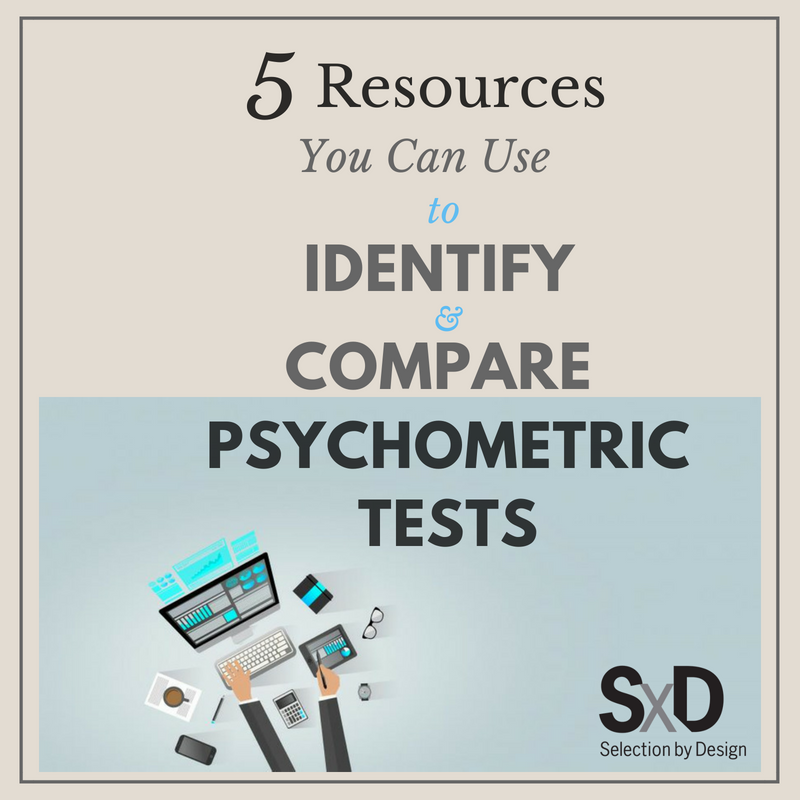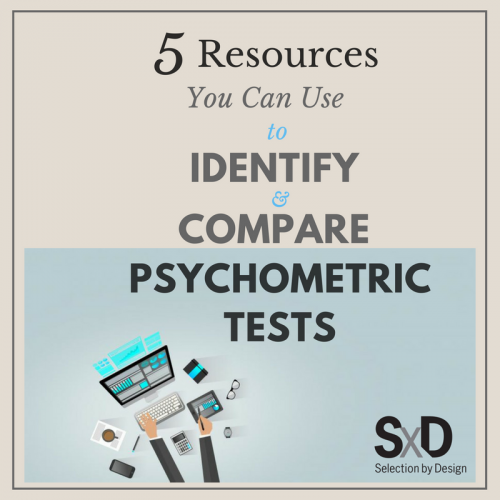
You need to assess the clerical skills of a pool of 60 applicants for an administrative assistant role. Psychometric testing seems like the best approach. But which tests should you use?
Whether you are an experienced psychometric Test User or initially exploring the potential benefits of including test results in an assessment, accessing information on available tests is essential. Reviews of critical technical and practical test qualities can be used to evaluate and compare instruments. Locating interpretable summaries of this kind of information however can be challenging.
Here are five useful resources to help you identify and compare commercially available psychometric tests.
Those who have completed the BPS Test User qualifications and are members of the Register of Qualifications in Test Use (RQTU) will find this list of tests available to them for purchase incredibly useful.
This impressive compilation offers many options to measure specific abilities, aptitude, characteristics and qualities.
Also available through the BPS website, test-specific reviews cover key areas to consider in comparing tests. Once potential tests for your specific purpose have been identified, you can refer to the BPS registry of test reviews to gather extensive data on the technical merits and practical details for each.
Tests included in this registry have been voluntarily submitted by test creators, publishers and distributors throughout the UK. Reviews are conducted independently and without commercial interest, using the European Federation of Psychologists Association Review Model for the Description and Evaluation of Psychological Tests (The EFPA Review Model).
To be awarded BPS Registered Test status, a test must demonstrate the ability to meet EFPA standards, which cover aspects such as the test’s technical and user documentation, quality of materials, validity, reliability, and normed comparison groups. The test reviews include ratings on each of these dimensions, allowing for clear comparisons across different measures.
Members of the RQTU and Chartered and Graduate members of the BPS may receive full reviews of tests free of charge. Non-members may access summary test reviews at no cost, and full reviews of tests may be purchased (details here).
If you need to evaluate tests considering a broader context, you will find the Buros Mental Measurement Yearbooks (MMY) a key resource.
The MMY is a series of test reviews published every three years by the Buros Center for Testing. Each volume includes thousands of test reviews, providing descriptions and professional evaluations for each. Tests included are commercially available, published in English, and newly revised or widely used since their last MMY listing. Reviewed instruments span the areas of occupational, educational, forensic and clinical assessment.
Each entry provides a comprehensive overview of the measure: test name; author and publisher; intended population; publication dates; forms and prices; plus additional information on reliability, validity, norming data, scoring and reporting services.
If the hardcopy MMY volumes are not readily available to you, Buros Test Reveiws Online is a great alternative.
- Test Publishers
Test publishers often have hardcopy or online catalogs of instruments on offer for purchase. Once you have identified a few assessments that may meet your needs, it can be helpful to contact the publishers to request further details and current pricing.
The BPS offers an informative listing of UK test publishers. If you’ve completed Test User training with SxD, you’ll already have received a listing of publishers we regularly use. You can also find additional links to test publishers here.
- Association of Test Publishers
It might be helpful to look at the Association of Test Publishers website for a broader listing of test publishers and distributors. This is a non-profit organization; ATP members include leading assessment providers and publishers in the testing industry.
These five information sources are great references for exploring your test options and drawing comparative data to aid in your choice of instruments.
If you currently hold psychometric testing accreditation, you may be qualified to purchase the tests you wish to use. Otherwise, you have the option of completing required training, or hiring professional psychometrics consultants such as SxD to assist with your testing needs.
Best,
Barbara


